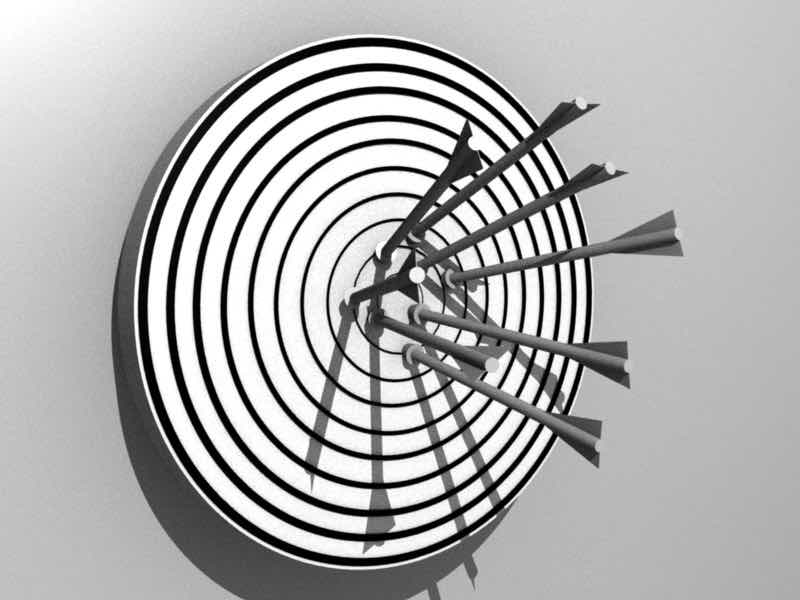
Setting Practice Goals
I believe that goal setting is a fundamental skill that needs to be developed in order to get the most out of your practice time. What you practice or play, how you go about it, and how much time you spend doing it should all be determined by a series of short-, medium- and long-term goals. These goals don’t have to be written or even spoken and will inevitably vary among different learners.
There are no right or wrong goals; we all learn differently and have different inspirations, and our goals should reflect this. This article will look at how to set goals to suit your personal learning needs and lifestyle. But firstly, let’s explore short-term, medium-term, and long-term goals.
Long-term Goals
- Long-term goals should refer to where you see yourself ending your musical adventure. Where do you want to be? Do you want to be making a living from music, whether that’s teaching or performing? Or do you merely want to get some light relief from the stresses of daily life?
- Your long-term goals will inevitably change as you improve as a musician and you continue exploring the possibilities of your instrument and music in general.
- Your long-term goals could be to learn a particular style of music. Each style of music is a new language. This is a concept that was introduced to me by watching the great jazz drummer Antonio Sanchez. He argues that each style of music has its own vocabulary, grammar, punctuation, syntax etc., and it is only possible to master each style by completely immersing yourself into it.
- You can have more than one long-term goal, for example, to simultaneously learn how to play Afro-Cuban drum kit and Afro-Brazilian drum kit.
- Once your long-term goals are decided, you now need to think about what to start practicing on a week by week basis. In other words, you should begin thinking about your medium-term goals.
Medium-term Goals
- Your medium-term goals are what you are aiming to achieve over a number of weeks or months. A medium-term goal could be “to feel completely comfortable playing any 8th note permutation in the bass drum,” or “to be able to improvise using sextuplets.” These concepts are too complex and too deep to set as short term goals, especially if you’re new to them, but they are both suitable as medium-term goals which could take a matter of months.
- These goals should be related either directly or indirectly to your long-term goals. For example, if one of your long-term goals is to learn how to play swing, then you will probably want to devote one of your medium-term goals to playing triplets.
- It’s important to remember that these goals are not possible to achieve without either planning or making note of what you practice on a day-to-day basis—your short-term goals.
Short-term Goals
- Short-term goals are those that you should set yourself every time you sit at your instrument.
- These goals could be tangible and measurable like “learn new groove/scale/exercise at new tempo.” They could also be more difficult to measure such as “feel more comfortable playing in 5/4.”
- Setting these short term goals will give you immediate focus and enable you to make small gains every time you practice. You should have a number of short-term goals, and the number and complexity of these goals will determine how much time you spend practicing daily.
Fundamental skills
Remember that there are certain areas of musicianship, which all musicians—regardless of their style, instrument, and personal goals—should aim to improve.
- The ability to feel a pulse and stay with that pulse without speeding up or slowing down. Time also refers to the ability to play rhythms accurately.
- The detailing of notes—articulation—refers to how each note is played. Legato, staccato, accents, acciaccaturas and ghost notes are all examples of articulation.
- Reading. The ability to read music at sight.
- Transcription. The ability to write music upon hearing it.
With the diligent practice of these fundamental skills and the use of focused short- and medium-term goals, your long-term goals will be all the more achievable.
Our next article will focus on planning and structuring your practice time to enable you to get the most from it and better fulfil your goals.
(This is Part II of the Practice series. Here is the first article on How to Make Practice Enjoyable)
Ready to learn music?
Start learning with our 30-day free trial! Try our courses now!About Liberty Park Music
LPM is an online music school. We teach a variety of instruments and styles, including classical and jazz guitar, piano, drums, and music theory. We offer high-quality music lessons designed by accredited teachers from around the world. Our growing database of over 350 lessons come with many features—self-assessments, live chats, quizzes etc. Learn music with LPM, anytime, anywhere!

You state musicians should be able to transcribe music when they hear it. I do not possess that skill. Do most musicians know the notes they’re hearing?
Hi Nadine,
I think transcription is a very important skill. I personally think that musicians should be able to transcribe or describe in musical language what it is they’re playing. That doesn’t necessarily mean writing it down on paper but as someone who grew up with Western classical notation this is how I prefer to transcribe.
Thanks for your comment
Brendan